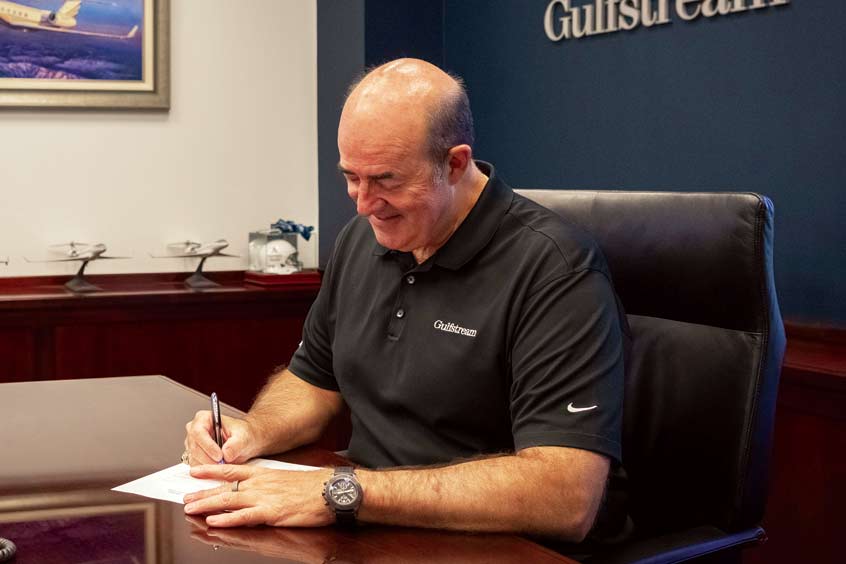 The monthly news publication for aviation professionals.
The monthly news publication for aviation professionals.

Gulfstream Aerospace has signed the World Economic Forum's Clean Skies for Tomorrow 2030 ambition statement. It is the first business aircraft manufacturer to sign the statement, a declaration of intent to accelerate the supply and use of SAF technologies to reach 10 per cent of global jet aviation fuel supply by 2030.
“For more than 60 years, Gulfstream has moved business aviation forward, setting the standards for performance, innovation, safety and comfort,” says president Mark Burns. “The Clean Skies for Tomorrow 2030 ambition statement is a call to action to grow the supply and use of SAF. We are committed to continuing to use and promote SAF.”
Gulfstream's focus on sustainability also includes modernisation of manufacturing and servicing facilities. Its three sustainability priorities are energy and emissions; operations and culture; and learning.
Since 2016, the company has purchased more than 1.4 million gallons of SAF and flown more than 1.5 million nautical miles on SAF. In July 2021, it became the first company to earn the National Aeronautic Association's Sustainable Wings certification, which recognises speed records set using SAF.
Many Gulfstream buildings have received the US Green Building Council's Leadership in Energy and Environmental Design Silver certification, and one is BREEAM certified, for a total of 2.2 million sq ft of green buildings. Since 2014, its total square footage has increased by more than 25 per cent while its carbon emissions have decreased by 10 per cent. Gulfstream's Dallas facility has used 100 per cent renewable energy through the purchase of renewable energy credits since 2018.
“Gulfstream's continued commitment to sustainability is simply the right thing to do for our environment, our communities and our customers, and is crucial for our future as a company,” adds Burns.